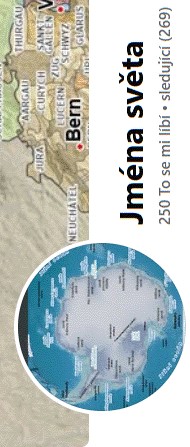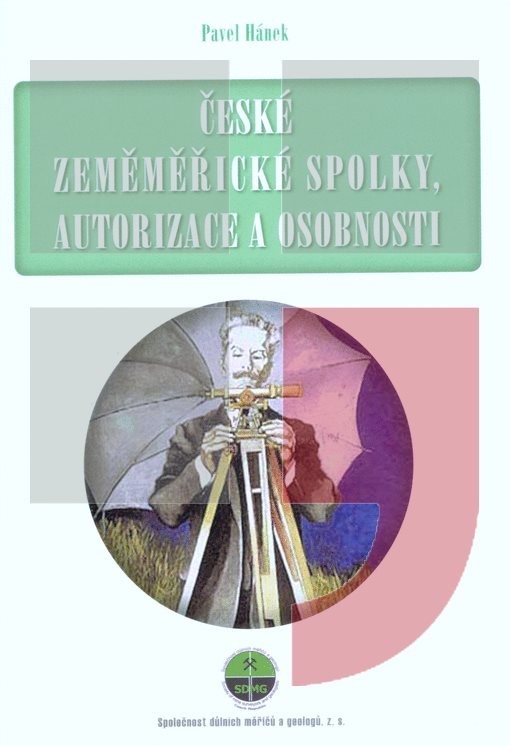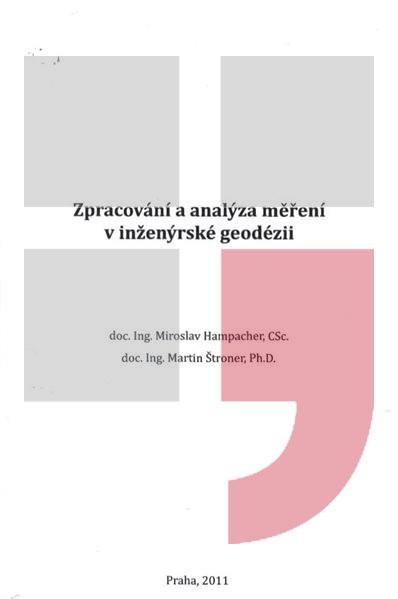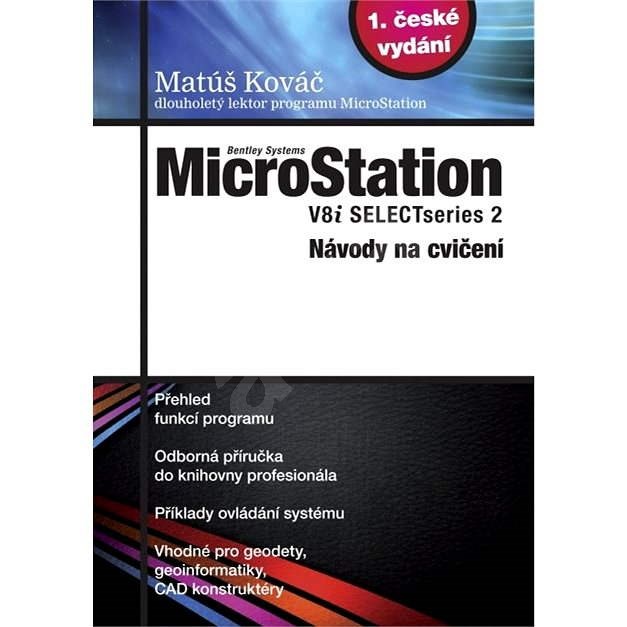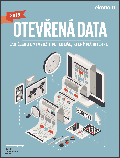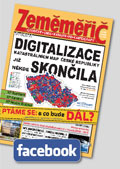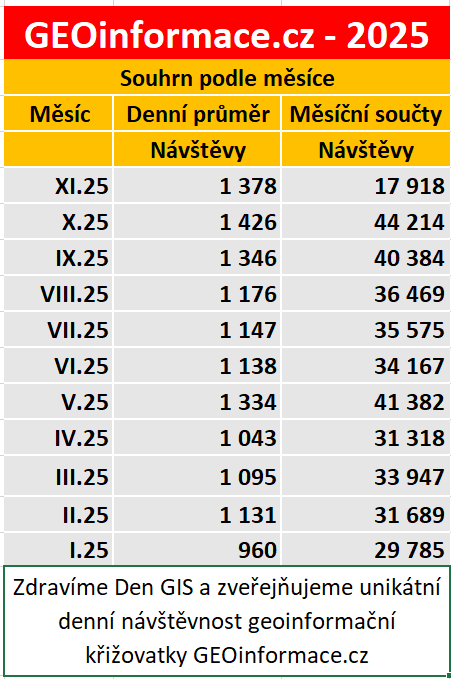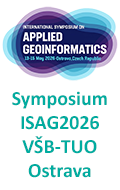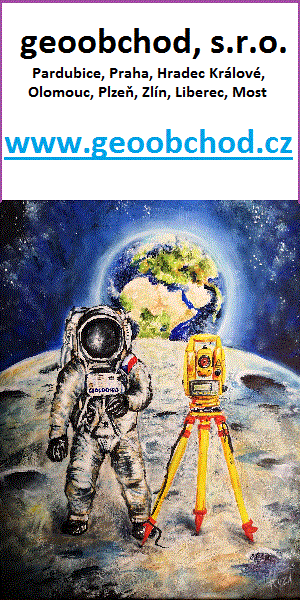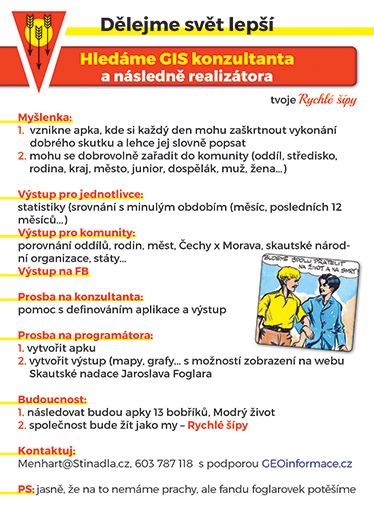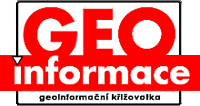zprávy
zdroje zpráv:Nominations now open for Bentley Systems Year in Infrastructure 2019 Awards
18.3.2019 16:38 Bentley SystemsPress Coverage
Infrastructure Intelligence, UK
Read the articlePress Announcements at 2019 ARC Industry Forum Address Challenges in Digital Transformation (Part 1)
18.3.2019 16:30 Bentley SystemsPress Coverage
ARC Advisory Group, USA
Read the articleDigital Water Works, Inc. Receives Strategic Investment from Bentley Systems
18.3.2019 16:22 Bentley SystemsPress Coverage
Informed Infrastructure, USA
Read the articleDigital Twins Executive Interview - Greg Bentley of Bentley Systems - ARC Industry Forum 2019
18.3.2019 16:18 Bentley SystemsPress Coverage
ARC Advisory Group, USA
Read the articleGreg Bentley Press Briefing at ARC Industry Forum 2019 – Going Digital with Digital Twins
18.3.2019 16:12 Bentley SystemsPress Coverage
ARC Advisory Group, USA
Read the articleGeospatial World Forum 2019 announces Hexagon as Platinum Sponsor
18.3.2019 15:52 GISCafe.com Webcasts-Webinars March 18, 2019 -- Amsterdam: Geospatial World Forum 2019, a collaborative and interactive platform, which demonstrates collective and shared vision …Esri Demonstrates Location Intelligence for Business Insights at the Gartner Data & Analytics Summit 2019
18.3.2019 15:51 GISCafe.com Webcasts-Webinars ORLANDO, Fla. — (BUSINESS WIRE) — March 18, 2019 —Gartner Data & Analytics Summit – Esri,
the global leader in …
Hexagon Publishes the Annual Report and Sustainability Report 2018
18.3.2019 15:51 GISCafe.com Webcasts-Webinars NACKA STRAND, Sweden, March 18, 2019 — (PRNewswire) — Hexagon's Annual Report 2018 and separate Sustainability Report is now available …Esri Demonstrates Location Intelligence for Business Insights at the Gartner Data & Analytics Summit 2019
18.3.2019 15:51 GISCafe.com Webcasts-Webinars ORLANDO, Fla. — (BUSINESS WIRE) — March 18, 2019 — Gartner Data & Analytics Summit – Esri, the global leader in location …Geon Network Partners with XYO to Improve Proof of Location Data for Cutting-Edge Augmented Reality Application
18.3.2019 15:51 GISCafe.com Webcasts-Webinars Partnership to Improve Accuracy and Validation in Bridge Between Real World and Augmented RealityGIBRALTAR & SAN DIEGO — (BUSINESS WIRE) …
Geon Network Partners with XYO to Improve Proof of Location Data for Cutting-Edge Augmented Reality Application
18.3.2019 15:51 GISCafe.com Webcasts-Webinars Partnership to Improve Accuracy and Validation in Bridge Between RealWorld and Augmented Reality
GIBRALTAR & SAN DIEGO — …
Hexagon presents new intelligent construction technology at bauma 2019
18.3.2019 14:24 GISCafe.com Webcasts-Webinars HEERBRUGG, Switzerland and TUCSON, Ariz., USA (12 March 2019) — Hexagon’s Geosystems and Mining divisions are presenting an …Pix4d Announces First User Conference In Denver, Colorado
18.3.2019 14:14 GISCafe.com Webcasts-Webinars Pix4D users are invited to share stories about working with drone mapping.13 March 2019 -- San Francisco, California: Pix4D will be hosting its …
Nabídka nepotřebného majetku - nábytek
18.3.2019 13:04 ČÚZK /Urady/Zememericke-a-katastralni-inspektoraty/Zememericke-a-katastralni-inspektoraty/Zememericky-a-katastralni-inspektorat-v-Pardubicic/Nabidky-majetku/Nabidka-nepotrebneho-majetku-nabytek-(1)Nabídka nepotřebného majetku - nábytek
18.3.2019 13:04 ČÚZK - předpisy a opatřeníZeměměřický a katastrální inspektorát v Pardubicích nabízí nepotřebný majetek k odkupu. Jedná se o nábytek.
Nabídka nepotřebného majetku - nábytek
20190318
18.3.2019 11:45 ČÚZK - předpisy a opatření Katastrální úřad pro Ústecký kraj - Katastrální pracoviště Chomutov zveřejnil novou aktualitu: Rada/odborný rada v oddělení aktualizace a dokumentace katastru nemovitostí KP Chomutov Volné místo - Rada/odborný rada v oddělení aktualizace a dokumentace katastru nemovitostí KP Chomutov20190318
18.3.2019 11:45 ČÚZK /Urady/Katastralni-urady/Katastralni-urady/Katastralni-urad-pro-Ustecky-kraj/O-uradu/Aktuality/20190318Rada/odborný rada v oddělení aktualizace a dokumentace katastru nemovitostí KP Chomutov
18.3.2019 11:42 ČÚZK - předpisy a opatření Katastrální úřad pro Ústecký kraj - Katastrální pracoviště Chomutovvypisuje výběrové řízení na místo Rada/odborný rada v oddělení aktualizace a dokumentace katastru nemovitostí KP Chomutov
Rada/odborný rada v oddělení aktualizace a dokumentace katastru nemovitostí KP Chomutov
Rada/odborný rada v oddělení aktualizace a dokumentace katastru nemovitostí KP Chomutov
18.3.2019 11:42 ČÚZK /Urady/Katastralni-urady/Katastralni-urady/Katastralni-urad-pro-Ustecky-kraj/Volna-mista/Rada-odborny-rada-v-oddeleni-aktualizace-a-dokumenRada/odborný rada v oddělení aktualizace a dokumentace katastru nemovitostí KP Chomutov
18.3.2019 11:42 ČÚZK - volná místa Katastrální úřad pro Ústecký kraj - Katastrální pracoviště Chomutov vypisuje výběrové řízení na místo Rada/odborný rada v oddělení aktualizace a dokumentace katastru nemovitostí KP ChomutovCo znamenají názvy ulic – ukázka z Německa
18.3.2019 8:00 GISportal.cz
Napadlo Vás někdy, jaké jsou prostorové vazby mazi názvem ulice ve Vašem městě a geografií Česka? Jmenuje se výpadovka na Prahu “Pražská”? Když zadáte do Mapy.cz “ulice Pražská” a “ulice Ostravská”, dostanete zajímavé prostorové rozdělení těchto názvů. O trochu detailnější analýzu, než jsem udělal já na Mapy.cz se pokusili novináři německého Zeit, kteří vytvořili databázi cca 450 […]
The post Co znamenají názvy ulic – ukázka z Německa appeared first on GISportal.cz.
Památné stromy
18.3.2019 1:00 Cenia - Katalog metadat ČR - INSPIRE Lokalizace objektů vyhlášených památných stromů (jednotlivý strom, stromořadí, skupina stromů); vrstva obsahuje složené prvky (Multipart Features); © AOPK ČR, 2019V Horním Újezdě si pochvalují digitalizovaný katastr
18.3.2019 0:00 Státní pozemkový úřad Horní Újezd je obcí na Přerovsku asi deset kilometrů jižně od města Hranice. Ve vesnici je registrováno 416 obyvatel. O tom, jak vypadala spolupráce s Pozemkovým úřadem, jsme mluvili se starostkou Alenou Veličkovou.Ve Svinařích si spolupráci s SPÚ chválí
18.3.2019 0:00 Státní pozemkový úřad Obec Svinaře má 750 obyvatel a najdete jí čtyři kilometry jihozápadně od středočeských Řevnic a patnáct kilometrů jihovýchodně od Berouna. V jednom katastru jsou zároveň kromě Svinař také osady Lhotka a Halouny. Na ty přímo navazuje brdské polesí.GIVS 2019 - Vyprodáno!
16.3.2019 7:00 Česká asociace pro geoinformace Konferenční sál na Geoinformace ve veřejné správě 2019 je již zaplněn! Děkujeme za registraci a těšíme se v květnu na viděnou na NovotnéhoVelodyne Lidar CEO Wins Alliance of Automobile Manufacturers’ Autos2050 Award
16.3.2019 0:10 GISCafe.com Webcasts-Webinars Autonomous Vehicle Pioneer Recognized for Game-changingContributions to Automotive Industry
SAN JOSE, Calif. — (BUSINESS WIRE) …
OGC invites you to a rail-themed Integrated Digital Built Environment (IDBE) Workshop
15.3.2019 19:57 GISCafe.com Webcasts-Webinars Results of this rail-themed workshop will provide input for the IDBE subcommittee to align the roadmaps of the relevant working groups within OGC and …RoboSense Provides LiDAR to GACHA -- First Autonomous Driving Shuttle Bus For All Weather Conditions Co-Developed by MUJI & Sensible 4
15.3.2019 18:15 GISCafe.com Webcasts-Webinars Before GACHA, Autonomous Cars Operated Only in Ideal Weather Conditions; RoboSense's LiDAR "Sees" a 3D World, Even in Finland's Snow & Extreme …Seminář o datech a službách ZÚ / ČÚZK
15.3.2019 15:00 Středočeský kraj Dne 12. 03. 2019 se v naplněném zasedacím sále Zastupitelstva Středočeského kraje konal Seminář o datech a službách resortu zeměměřictví a katastru. Semináře se zúčastnili pracovníci krajského úřadu z oboru územního plánování, stavebního řízení, životního prostředí a dopravy, ale také zástupci obcí s rozšířenou působností a zástupci stavebních úřadů. Úvodního slova se ujal zástupce ředitele krajského úřadu pro sekci veřejných služeb, Mgr. Jindřich Schenk. Následně seminář vedli zástupci Zeměměřického úřadu a Českého úřadu zeměměřického a katastrálního. Účastníci se dozvěděli novinky z oblasti informačního systému veřejné správy zeměměřictví, zejména informace o aktualizaci Základní Báze Geografických Dat (ZABAGED) a státních mapových děl. Získali přehled o inovovaných aplikacích Zeměměřického úřadu. V neposlední řadě byli informováni o datech a službách z katastru nemovitostí. Seminář zorganizoval Odbor informatiky.Mapová aplikace ÚPD - nové dokumentace
15.3.2019 14:45 Jihočeský kraj V mapové aplikaci Územně plánovací dokumentace obcí byla aktualizována územně plánovací dokumentace obcí Drhovice, Horní Vltavice, Hospříž, Krašlovice, Lčovice, Lodhéřov, Popelín, Předmíř, Stachy, Stožice, Střížovice, Temelín, Záblatí (okr. Prachatice), Zálezly a Zbytiny.Telefonista/Telefonistka
15.3.2019 13:03 ČÚZK /Urady/Zememericky-urad/Volna-mista/Telefonista-TelefonistkaTelefonista/Telefonistka
15.3.2019 13:03 ČÚZK - volná místa Zeměměřický úřad vypisuje výběrové řízení na místo Telefonista/TelefonistkaTelefonista/Telefonistka
15.3.2019 13:03 ČÚZK - předpisy a opatření Zeměměřický úřadvypisuje výběrové řízení na místo
Telefonista/Telefonistka
Telefonista/Telefonistka
15.3.2019 13:03 Zeměměřický úřad Zeměměřický úřadvypisuje výběrové řízení na místo
Telefonista/Telefonistka
vrchní referent/rada - obnova katastrálního operátu - v oddělení aktualizace KN Katastrálního pracov
15.3.2019 10:11 ČÚZK - volná místa Katastrální úřad pro Jihočeský kraj - Katastrální pracoviště Strakonice vypisuje výběrové řízení na místo vrchní referent/rada - obnova katastrálního operátu - v oddělení aktualizace KN Katastrálního pracovvrchní referent/rada - obnova katastrálního operátu - v oddělení aktualizace KN Katastrálního pracov
15.3.2019 10:11 ČÚZK /Urady/Katastralni-urady/Katastralni-urady/Katastralni-urad-pro-Jihocesky-kraj/Uredni-deska/Oznameni-a-jina-uredni-sdeleni/Volna-mista/vrchni-ref-rada-OA_STvrchní referent/rada - obnova katastrálního operátu - v oddělení aktualizace KN Katastrálního pracov
15.3.2019 10:11 ČÚZK - předpisy a opatření Katastrální úřad pro Jihočeský kraj - Katastrální pracoviště Strakonicevypisuje výběrové řízení na místo
vrchní referent/rada - obnova katastrálního operátu - v oddělení aktualizace KN Katastrálního pracoviště Strakonice
Nairobi
15.3.2019 10:05 ESA Observing the Earth
Earth observation image of the week: a Copernicus Sentinel-2 view over Kenya’s capital
Earth from Space
15.3.2019 10:05 ESA Observing the Earth
In this week's edition, the Copernicus Sentinel-2 mission takes us over Kenya’s capital, Nairobi
Jarní akce, na kterých se s vámi rádi setkáme
15.3.2019 10:00 ARCDATAPokud máte v plánu návštěvu tradičních jarních konferencí ISSS a GIVS, tak vězte, že my také a že vás na nich rádi uvidíme.
Těšit se můžete zejména na informace o novinkách v technologiích ArcGIS (webový GIS, moderní analytický nástroj Insights for ArcGIS a další) i na aktuální témata veřejné správy, kam patří využití dat katastru nemovitostí a RÚIAN, integrace GIS a BIM a ty nejčerstvější novinky ohledně projektu Digitální technické mapy ČR.
Více se o naší plánované účasti můžete dočíst na samostatných stránkách:
Těšíme se na viděnou.
vrchní referent/rada - obnova katastrálního operátu - v oddělení aktualizace a dokumentace KN Katast
15.3.2019 9:55 ČÚZK - předpisy a opatření Katastrální úřad pro Jihočeský kraj - Katastrální pracoviště Český Krumlovvypisuje výběrové řízení na místo
vrchní referent/rada - obnova katastrálního operátu - v oddělení aktualizace a dokumentace KN Katastrálního pracoviště Český Krumlov
vrchní referent/rada - obnova katastrálního operátu - v oddělení aktualizace a dokumentace KN Katast
15.3.2019 9:55 ČÚZK /Urady/Katastralni-urady/Katastralni-urady/Katastralni-urad-pro-Jihocesky-kraj/Uredni-deska/Oznameni-a-jina-uredni-sdeleni/Volna-mista/vrchni-ref-rada-OAD_CKvrchní referent/rada - obnova katastrálního operátu - v oddělení aktualizace a dokumentace KN Katast
15.3.2019 9:55 ČÚZK - volná místa Katastrální úřad pro Jihočeský kraj - Katastrální pracoviště Český Krumlov vypisuje výběrové řízení na místo vrchní referent/rada - obnova katastrálního operátu - v oddělení aktualizace a dokumentace KN KatastMaptek invests with PETRA Data Science
15.3.2019 9:17 GISCafe.com Webcasts-Webinars March 14, 2019 -- In an industry first, Maptek and PETRA Data Science have established a partnership which will enable seamless value chain …Seminář projektu ATTRACTIVE DANUBE
15.3.2019 9:09 CENIA - národní geoportál INSPIRE CENIA, česká informační agentura životního prostředí pořádá již druhý školicí seminář projektu ATTRACTIVE DANUBE. Cílem semináře je představit platformy pro prezentaci indikátorů územní atraktivity: Nadnárodní verzi pro celý podunajský region a českou národní verzi s indikátory jen pro Českou republiku. Seminář proběhne v rámci konference GIS Ostrava, a to druhý konferenční den 21. 3. 2019 od..."Bluesky and Ambiental Risk Analytics Partner to Deliver Topographic Flood Risk Data" by Susan Smith
15.3.2019 8:57 GISCafe.com Webcasts-WebinarsAktivity v kartografii venované Jánovi Pravdovi 2019 (pozvánka)
15.3.2019 8:21 GISportal.cz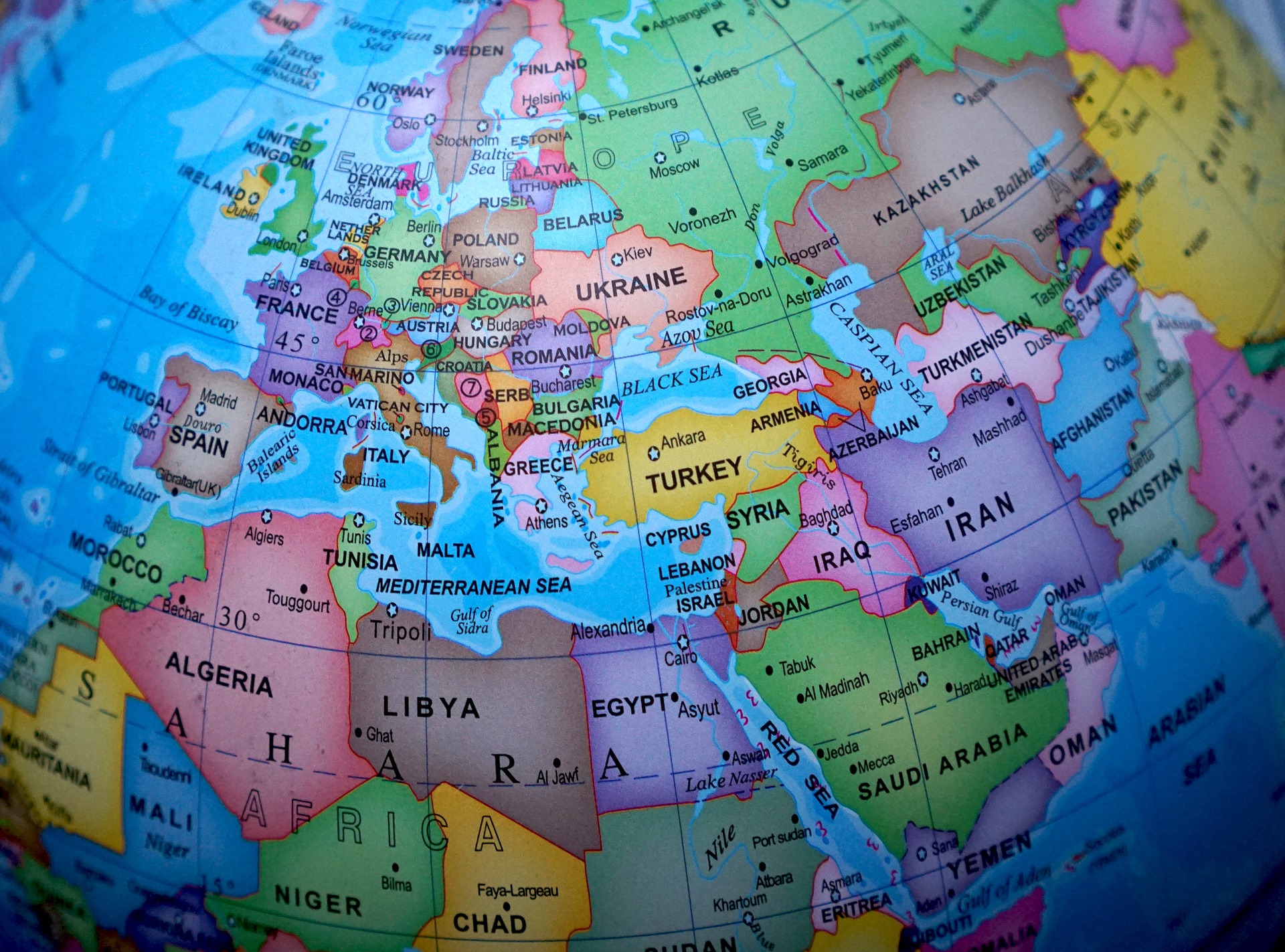
Kartografická společnost Slovenské republiky zve na seminář Aktivity v kartografii. V tomto roku uplynulo 25 rokov od organizovania prvého seminára AKTIVITY V KARTOGRAFII. Cieľom seminára je poskytnúť priestor odborníkom z viacerých vedných disciplín prezentovať svoje kartografické diela a súčasne diskutovať o aktuálnych otázkach týkajúcich sa kartografie a príbuzných disciplín. TERMÍN: 24. október 2019 MIESTO KONANIA: Stavebná fakulta, Bratislava TERMÍNY: Prihlásenie abstraktov: 31.5.2019 […]
The post Aktivity v kartografii venované Jánovi Pravdovi 2019 (pozvánka) appeared first on GISportal.cz.
Program třebíčského semináře o pozemkových úpravách
15.3.2019 8:03 Zeměměřič Znáte první dodatek k Návodu pro obnovu katastrálního operátu?Harris Corporation to Announce Third Quarter Results on Wednesday, May 1, 2019
15.3.2019 8:00 GISCafe.com Webcasts-Webinars MELBOURNE, Fla. — (BUSINESS WIRE) — March 12, 2019 — Harris Corporation (NYSE:HRS) will host a conference call on Wednesday, May 1, …Výzva k podávání přihlášek do Programu na podporu mobility doktorandů
15.3.2019 0:00 Geografický ústav MUProgram CEFRES nabízí finanční podporu za účelem mobility na dobu jednoho roku pro doktorandy nejméně ve 2. ročníku doktorského studia z Francie, Maďarska, Polska, Slovenska nebo České republiky. Tento program finanční podpory se týká mladých vědců, jejichž práce se vztahují k jedné z výzkumných os CEFRESu. Financování bude poskytováno ve výši 20 000 Kč měsíčně po dobu 12 měsíců. Podmínkou je dobrá úroveň angličtiny, znalost francouzštiny je výhodou. Vybraní doktorandi se zapojí do týmu CEFRESu a budou se účastnit vědeckých aktivit ústavu.
Uzávěrka na podávání přihlášek: 15. března 2019 (17:00)
Období: 1. září 2019 – 31. srpna 2020
Bližší informace naleznete na webu http://www.cefres.cz/cs/5283.
Seminář Pozemkové úpravy XXIV., 2019
14.3.2019 21:55 Spolek zeměměřičů Brno Spolek zeměměřičů Brno pořádá ve čtvrtek 4. 4. 2019 v Třebíči XXIV. ročník odborného semináře zaměřeného na problematiku pozemkových úprav Program Mgr. Jaroslava Doubravová (SPÚ) Pozemkové úpravy, současný stav a výhled Ing. Bc. Jan Kmínek (ČÚZK) Dodatek č.1 k Návodu pro obnovu katastrálního operátu Mgr. Martin Blecha, Ph.D. (SPÚ) Aktuality... Read more »Oil&Gas, infrastructure and environment: Planetek and Airbus present satellite services at the OMC 2019
14.3.2019 21:17 GISCafe.com Webcasts-Webinars Planetek Italia will join the Offshore Mediterranean Conference & Exhibition (OMC 2019), which will take place on 27-29 March 2019 in Ravenna, …FARO® Releases FARO ZONE 3D 2019 for Public Safety
14.3.2019 21:17 GISCafe.com Webcasts-Webinars LAKE MARY, Fla., March 14, 2019 — (PRNewswire) — FARO® (NASDAQ: FARO), the world's most trusted source for 3D measurement and …New Online Mapping Tool Reveals 500 Million Square Feet of Public Land Potentially Usable for Affordable Housing
14.3.2019 21:17 GISCafe.com Webcasts-Webinars Free online tool developed by the University of Miami with supportfrom Citi aims to jump-start affordable housing development in
…
New City of Houston and Civis Analytics Report Details Methodology for Smarter, More Accurate Disaster Recovery
14.3.2019 21:17 GISCafe.com Webcasts-Webinars HOUSTON and CHICAGO, March 14, 2019 — (PRNewswire) — The City of Houston Housing and Community Development Department, along with …Comprehensive Communication Services and Fortress UAV Partner to Provide Fully Comprehensive MERC-UASC Solution
14.3.2019 21:17 GISCafe.com Webcasts-Webinars PLANO, Texas, March 14, 2019 — (PRNewswire) — Comprehensive Communication Services (CCS), a company created after Hurricane …Bering in dire straits
14.3.2019 16:00 ESA Observing the Earth
The Bering Strait is usually covered by sea ice at this time of the year, but the Copernicus Sentinel-1 mission shows a different story
New Regulation mandates Galileo capability for all smartphones sold in the EU
14.3.2019 13:58 European GNSS Agency
A recently published Commission Delegated Regulation sets out measures to introduce Global Navigation Satellite System (GNSS) capability, particularly Galileo capability, in advanced computing capability mobile telephones (or ‘’smartphones’’) placed on the European Union market from 17 March 2022, so that they can support the transfer of caller location information from GNSS (at least Galileo) in the event of 112 emergency calls (E112).
A large majority of phone calls to the 112 emergency number are placed from mobile phones. These calls already support the sending of location information to emergency services. However, this information is not based on GNSS.
E112 makes use of Galileo to establish location for emergency calls to the 112 emergency number. Mandating the use of Galileo in smartphones will improve the accuracy of the caller location, which will allow emergency responders to get to the scene of an accident faster. The Regulation will apply in all EU Member States from 17 March 2022.
Enhanced positioning saving lives
There is already a solution in place that uses GNSS technology in emergency calls made from smartphones. Advanced Mobile Location, or AML, transmits the GNSS, Wi-Fi or cell-ID information available on the caller's smartphone via a message to a dedicated end-point, usually a Public Safety Answering Point (PSAP), which makes the caller location available to emergency responders in real time.
AML has been deployed in several EU Member States thanks to the EU-funded Help 112 project, which was set up to evaluate the merits of handset-based technologies in improving the location of emergency callers, and which is now in its second phase.
The E112 concept is similar to the eCall system, mandated for use in all new car and light van models that receive type-approval in the EU from 31 March 2018, which automatically dials the 112 emergency number in the event of a serious accident and sends the position information of the car.
Read this: Volvo presents on stage the first eCall-enabled car
“The ability to precisely locate the site of an emergency enables first responders to arrive on the scene faster which, in turn, results in more lives saved. Galileo is already supporting a faster emergency response in the eCall system and now, with the new Regulation, all Europeans making an 112 emergency call from a smartphone will be able to benefit from the same precision,” said GSA Executive Director Carlo des Dorides.
Accuracy of a few metres
Location information is currently established through identification technology based on the coverage area of the cellular network tower (cell-ID). The average accuracy of this information varies from 2 km to 10 km, which can lead to significant search errors following emergency calls, resulting is time wasted and lives lost. In contrast, location information based on GNSS provides an average accuracy between 6 and 28 meters. This level of accuracy will have a major impact in terms of emergency response times.
Media note: This feature can be republished without charge provided the European GNSS Agency (GSA) is acknowledged as the source at the top or the bottom of the story. You must request permission before you use any of the photographs on the site. If you republish, we would be grateful if you could link back to the GSA website (http://www.gsa.europa.eu).
New Regulation mandates Galileo capability for all smartphones sold in the EU
14.3.2019 13:58 European GNSS Agency
A recently published Commission Delegated Regulation sets out measures to introduce Global Navigation Satellite System (GNSS) capability, particularly Galileo capability, in advanced computing capability mobile telephones (or ‘’smartphones’’) placed on the European Union market from 17 March 2022, so that they can support the transfer of caller location information from GNSS (at least Galileo) in the event of 112 emergency calls (E112).
A large majority of phone calls to the 112 emergency number are placed from mobile phones. These calls already support the sending of location information to emergency services. However, this information is not based on GNSS.
E112 makes use of Galileo to establish location for emergency calls to the 112 emergency number. Mandating the use of Galileo in smartphones will improve the accuracy of the caller location, which will allow emergency responders to get to the scene of an accident faster. The Regulation will apply in all EU Member States from 17 March 2022.
Enhanced positioning saving lives
There is already a solution in place that uses GNSS technology in emergency calls made from smartphones. Advanced Mobile Location, or AML, transmits the GNSS, Wi-Fi or cell-ID information available on the caller's smartphone via a message to a dedicated end-point, usually a Public Safety Answering Point (PSAP), which makes the caller location available to emergency responders in real time.
AML has been deployed in several EU Member States thanks to the EU-funded Help 112 project, which was set up to evaluate the merits of handset-based technologies in improving the location of emergency callers, and which is now in its second phase.
The E112 concept is similar to the eCall system, mandated for use in all new car and light van models that receive type-approval in the EU from 31 March 2018, which automatically dials the 112 emergency number in the event of a serious accident and sends the position information of the car.
Read this: Volvo presents on stage the first eCall-enabled car
“The ability to precisely locate the site of an emergency enables first responders to arrive on the scene faster which, in turn, results in more lives saved. Galileo is already supporting a faster emergency response in the eCall system and now, with the new Regulation, all Europeans making an 112 emergency call from a smartphone will be able to benefit from the same precision,” said GSA Executive Director Carlo des Dorides.
Accuracy of a few metres
Location information is currently established through identification technology based on the coverage area of the cellular network tower (cell-ID). The average accuracy of this information varies from 2 km to 10 km, which can lead to significant search errors following emergency calls, resulting is time wasted and lives lost. In contrast, location information based on GNSS provides an average accuracy between 6 and 28 meters. This level of accuracy will have a major impact in terms of emergency response times.
Media note: This feature can be republished without charge provided the European GNSS Agency (GSA) is acknowledged as the source at the top or the bottom of the story. You must request permission before you use any of the photographs on the site. If you republish, we would be grateful if you could link back to the GSA website (http://www.gsa.europa.eu).
Sentinels monitor converging ice cracks
14.3.2019 12:00 ESA Observing the Earth
The Copernicus Sentinel-1 radar mission shows how cracks cutting across Antarctica’s Brunt ice shelf are on course to truncate the shelf and release an iceberg about the size of Greater London – it’s just a matter of time.
Výstava Mikuláš Klaudyán- první mapa Čech probíhá Teplicích [Knihovna geografie, byTopic]
14.3.2019 11:40 Katedra aplikované geoinformatiky a kartografie Přf UK Knihovna geografie zapůjčila výstavu Mikuláš Klaudyán - první mapa Čech pro instalaci v prostorách Gymnázia Teplice až do 31. května 2019.Výstava Mikuláš Klaudyán- první mapa Čech probíhá v Teplicích [Knihovna geografie, byTopic]
14.3.2019 11:40 Katedra aplikované geoinformatiky a kartografie Přf UK Knihovna geografie zapůjčila výstavu Mikuláš Klaudyán - první mapa Čech pro instalaci v prostorách Gymnázia Teplice až do 31. května 2019.Výstava Mikuláš Klaudyán- první mapa Čech v Teplicích [Knihovna geografie, byTopic]
14.3.2019 11:40 Katedra aplikované geoinformatiky a kartografie Přf UK Knihovna geografie zapůjčila výstavu Mikuláš Klaudyán - první mapa Čech pro instalaci v prostorách Gymnázia Teplice až do 31. května 2019.20190314-GaKO-3-2019
14.3.2019 10:46 ČÚZK - předpisy a opatření Český úřad zeměměřický a katastrální zveřejnil novou aktualitu: Aktuální číslo Geodetického a kartografického obzoru (3/2019) je k dispozici ke stažení.
Nové číslo GaKO
14.3.2019 10:40
ÚGKK SR
Nové číslo časopisu Geodetického a Kartografického Obzoru 3/2019
G++ – kultovní geodetická akce
14.3.2019 10:21 GISportal.cz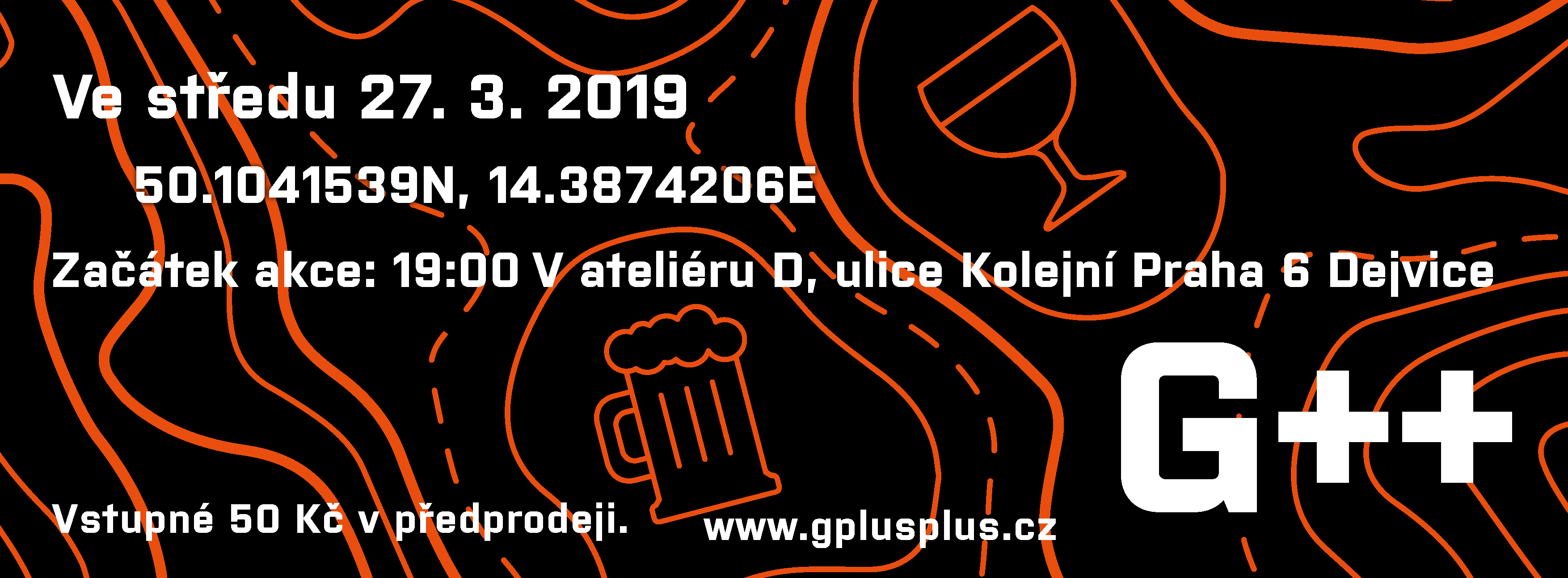
Akci nazvanou G++ každoročně pořádají studenti 1. ročníku magisterských studijních oborů Geodézie a kartografie a Geomatika z Fakulty stavební ČVUT v Praze. Tato tradice vznikla již v roce 1991 a kromě pauzy v období 1995 až 2001 se koná pravidelně. Jedná se o neformální příležitost pro přátelská setkání a navázání kontaktů mezi studenty, absolventy, pedagogy i zástupci […]
The post G++ – kultovní geodetická akce appeared first on GISportal.cz.
GaKO 3/2019
14.3.2019 10:16 GaKO GaKO 3/2019 ANTAL, M.–ZÁPOTOCKÝ, M.: Hodnotenie estetickej úrovne lesných porastov v okolí turistických trás s využitím GIS: prípadová štúdia pre územie Podpoľania ŠAFÁŘ, V.–TLAPÁKOVÁ, L.: Archivní letecký snímek – cesta k informaci o poloze melioračního systémuIntroducing the senseFly eBee X with MicaSense RedEdge-MX, a seamless dual solution for accurate and efficient crop analysis
14.3.2019 9:16 GISCafe.com Webcasts-Webinars The sensor that doesn’t compromise meets mapping without limits. New dual solution enables farming, agricultural science, forestry and …Cesty NP - pasport
14.3.2019 1:00 Cenia - Katalog metadat ČR - INSPIRE Pasport cest (pěší trasy, cyklotrasy, cyklostezky, lyžařské trasy, naučné stezky, hipostezky, neznačené cesty, silnice) v jedné datové vrstvě - rozdělené na jednotlivé dílčí úseky dle kategorií. Linie se nepřekrývají - pokud mají různé typy značení souběh, existuje pouze jedna linie.EagleView Secures Significant Appeal Win In Ongoing Patent Litigation Against Xactware And Verisk
13.3.2019 18:32 GISCafe.com Webcasts-Webinars BELLEVUE, Wash., March 13, 2019 — (PRNewswire) — EagleView®, a leading technology provider of aerial imagery and data analytics, …EagleView Secures Significant Appeal Win In Ongoing Patent Litigation Against Xactware And Verisk
13.3.2019 18:32 GISCafe.com Webcasts-Webinars BELLEVUE, Wash., March 13, 2019 — (PRNewswire) — EagleView®, a leading technology provider of aerial imagery and data …CycloMedia Technologies is Associate Sponsor at Geospatial World Forum 2019
13.3.2019 15:57 GISCafe.com Webcasts-Webinars March 13, 2019 -- Amsterdam: Geospatial Media and Communications is pleased to introduce CycloMedia Technology as the Associate Sponsor for …Bluesky 3D Terrain Models Upgrade Ambiental Risk Analytics’ Flood Risk Map
13.3.2019 15:57 GISCafe.com Webcasts-Webinars 3D models derived from high resolution aerial photography are underpinning the most up-to-date flood risk map of the UK. Working alongside Ambiental …CesiumAstro Raises $12.4 Million in Series A Funding Led by Airbus Ventures
13.3.2019 15:56 GISCafe.com Webcasts-Webinars Advancing High-Throughput Agile Communications Systems for NextGeneration Aerospace Platforms
AUSTIN, Texas — (BUSINESS WIRE) …
Esri Demonstrates Location Intelligence for Business Insights at the Gartner Data & Analytics Summit 2019
13.3.2019 15:56 GISCafe.com Webcasts-Webinars ORLANDO, Fla. — (BUSINESS WIRE) — March 13, 2019 —Gartner Data & Analytics Summit – Esri,
the global leader in …
World's first universal drone solutions platform takes center stage at Terra Drone Global Summit
13.3.2019 15:56 GISCafe.com Webcasts-Webinars 3-day event sees participation by leaders from over 20 countriesTOKYO, March 13, 2019 — (PRNewswire) — Terra Drone Corporation …
GSA, SESAR Deployment Manager sign MoU on EGNSS support for Air Traffic Management
13.3.2019 14:10 European GNSS Agency
The European GNSS Agency (GSA) and the SESAR Deployment Manager (SDM) signed a Memorandum of Understanding at the World ATM Congress in Madrid on 13 March on future cooperation to modernise EU Air Traffic Management by leveraging Galileo and EGNOS.
Both EGNOS and Galileo can support the modernisation of EU Air Traffic Management, particularly in the areas of air navigation and surveillance. SESAR Deployment Manager (SDM) has been tasked by the European Commission to synchronise and coordinate the deployment of the Pilot Common Project as specified in the SESAR Deployment Programme. Within this programme, Performance Based Navigation and Surveillance, which rely on GNSS, are one of the six ATM functionalities. The MoU signed in Madrid details how GSA and SDM will work together to bring this about.
Important milestone
“This is an important milestone in cooperation between the GSA and SDM and one that will ensure that all aviation stakeholders reap the benefits of Europe’s investment in space,” said GSA Executive Director Carlo des Dorides.
“The GSA is looking forward to cooperating with SDM to reinforce relations with ANSPs and airlines and help them to benefit from EGNOS and Galileo,” confirmed Pascal Claudel, GSA Chief Operating Officer, who signed the MoU on behalf of the GSA.
“I am happy that today, at the World ATM Congress, the GSA and the SESAR Deployment Manager signed this cooperation agreement. This new agreement will reinforce the SDM connection with space-based technologies for ATM and CNS. Indeed, there is growing proximity between ATM and space, as space-based enablers would certainly bring an essential contribution, enabling the most critical Pilot Common Project ATM functionalities as well as CNS modernisation. This agreement materialises the fact that GSA and SDM share common objectives and have mutual interests in successful E-GNSS and SESAR deployment,” said Nicolas Warinsko, General Manager, SESAR Deployment Manager.
The first of the applications covered by the MoU is Performance Based Navigation (PBN), which aims to ensure global standardisation of Area Navigation (RNAV) and Required Navigation Performance (RNP) specifications, in an effort to limit the proliferation of navigation specifications used around the world.
The European Commission’s PBN Regulation, published in 2018, mandates the implementation of EGNOS approaches at all Europe’s runways by 2024. In suitably equipped aircraft, EGNOS enables aircraft approach procedures that are operationally equivalent to instrument landing system (ILS) ILS Cat-I procedures. The regulation also envisages a full PBN environment by 2030, leading to rationalisation of conventional procedures. For Cat II/III, work is ongoing to make Europe benefit from Ground Based Augmentation System (GBAS) Cat-II/III based on GPS and Galileo dual frequency. Going further, Europe is also investing in the next version of EGNOS, which will also augment Galileo, and the Advanced RAIM concept, also relying on both GPS and Galileo.
This is recognised as a major step in the evolution of the European navigation infrastructure by ANSP organisations.
EGNOS unlocking capacity improvements
The second area of cooperation between the GSA and SDM deals with Automatic Dependent Surveillance – Broadcast (ADS-B) Out, which is a surveillance technique that relies on aircraft broadcasting their identity, position, and other information derived from on board systems. This signal can then be received for surveillance purposes on the ground.
The current regulation mandates airspace users to be equipped by 2020, including with a GNSS receiver. While SBAS is not mandated, it is widely recognised that SBAS can unlock capacity improvements and support enhanced surveillance operations, as well as support the business case, when synchronised with navigation.
Airspace users require an integrated and synchronised strategy for navigation and surveillance, to optimise their investments, and the GSA will work together with SDM to that end. The GSA and SDM will also work together to assist air navigation service providers (ANSPs) and airlines in using EGNOS and Galileo.
Background
In 2004 the European Union adopted the first Single European Sky (SES) legislative package meant to reform the architecture of European air traffic management (ATM) in order to meet future capacity and safety needs at European level. Updated in 2009, the SES regulatory framework consists of four pillars: regulating performance; a single safety framework; new technologies; and managing capacity on the ground.
The Single European Sky ATM Research and Development (SESAR) project represents the technological pillar of the SES. It aims to provide the EU with a high performing ATM infrastructure by 2030 that will enable the safe and environmentally friendly operation and development of air transport.
Media note: This feature can be republished without charge provided the European GNSS Agency (GSA) is acknowledged as the source at the top or the bottom of the story. You must request permission before you use any of the photographs on the site. If you republish, we would be grateful if you could link back to the GSA website (http://www.gsa.europa.eu).
GSA, SESAR Deployment Manager sign MoU on EGNSS support for Air Traffic Management
13.3.2019 14:10 European GNSS Agency
The European GNSS Agency (GSA) and the SESAR Deployment Manager (SDM) signed a Memorandum of Understanding at the World ATM Congress in Madrid on 13 March on future cooperation to modernise EU Air Traffic Management by leveraging Galileo and EGNOS.
Both EGNOS and Galileo can support the modernisation of EU Air Traffic Management, particularly in the areas of air navigation and surveillance. SESAR Deployment Manager (SDM) has been tasked by the European Commission to synchronise and coordinate the deployment of the Pilot Common Project as specified in the SESAR Deployment Programme. Within this programme, Performance Based Navigation and Surveillance, which rely on GNSS, are one of the six ATM functionalities. The MoU signed in Madrid details how GSA and SDM will work together to bring this about.
Important milestone
“This is an important milestone in cooperation between the GSA and SDM and one that will ensure that all aviation stakeholders reap the benefits of Europe’s investment in space,” said GSA Executive Director Carlo des Dorides.
“The GSA is looking forward to cooperating with SDM to reinforce relations with ANSPs and airlines and help them to benefit from EGNOS and Galileo,” confirmed Pascal Claudel, GSA Chief Operating Officer, who signed the MoU on behalf of the GSA.
“I am happy that today, at the World ATM Congress, the GSA and the SESAR Deployment Manager signed this cooperation agreement. This new agreement will reinforce the SDM connection with space-based technologies for ATM and CNS. Indeed, there is growing proximity between ATM and space, as space-based enablers would certainly bring an essential contribution, enabling the most critical Pilot Common Project ATM functionalities as well as CNS modernisation. This agreement materialises the fact that GSA and SDM share common objectives and have mutual interests in successful E-GNSS and SESAR deployment,” said Nicolas Warinsko, General Manager, SESAR Deployment Manager.
The first of the applications covered by the MoU is Performance Based Navigation (PBN), which aims to ensure global standardisation of Area Navigation (RNAV) and Required Navigation Performance (RNP) specifications, in an effort to limit the proliferation of navigation specifications used around the world.
The European Commission’s PBN Regulation, published in 2018, mandates the implementation of EGNOS approaches at all Europe’s runways by 2024. In suitably equipped aircraft, EGNOS enables aircraft approach procedures that are operationally equivalent to instrument landing system (ILS) ILS Cat-I procedures. The regulation also envisages a full PBN environment by 2030, leading to rationalisation of conventional procedures. For Cat II/III, work is ongoing to make Europe benefit from Ground Based Augmentation System (GBAS) Cat-II/III based on GPS and Galileo dual frequency. Going further, Europe is also investing in the next version of EGNOS, which will also augment Galileo, and the Advanced RAIM concept, also relying on both GPS and Galileo.
This is recognised as a major step in the evolution of the European navigation infrastructure by ANSP organisations.
EGNOS unlocking capacity improvements
The second area of cooperation between the GSA and SDM deals with Automatic Dependent Surveillance – Broadcast (ADS-B) Out, which is a surveillance technique that relies on aircraft broadcasting their identity, position, and other information derived from on board systems. This signal can then be received for surveillance purposes on the ground.
The current regulation mandates airspace users to be equipped by 2020, including with a GNSS receiver. While SBAS is not mandated, it is widely recognised that SBAS can unlock capacity improvements and support enhanced surveillance operations, as well as support the business case, when synchronised with navigation.
Airspace users require an integrated and synchronised strategy for navigation and surveillance, to optimise their investments, and the GSA will work together with SDM to that end. The GSA and SDM will also work together to assist air navigation service providers (ANSPs) and airlines in using EGNOS and Galileo.
Background
In 2004 the European Union adopted the first Single European Sky (SES) legislative package meant to reform the architecture of European air traffic management (ATM) in order to meet future capacity and safety needs at European level. Updated in 2009, the SES regulatory framework consists of four pillars: regulating performance; a single safety framework; new technologies; and managing capacity on the ground.
The Single European Sky ATM Research and Development (SESAR) project represents the technological pillar of the SES. It aims to provide the EU with a high performing ATM infrastructure by 2030 that will enable the safe and environmentally friendly operation and development of air transport.
Media note: This feature can be republished without charge provided the European GNSS Agency (GSA) is acknowledged as the source at the top or the bottom of the story. You must request permission before you use any of the photographs on the site. If you republish, we would be grateful if you could link back to the GSA website (http://www.gsa.europa.eu).
GSA, SESAR Deployment Manager sign MoU on EGNSS support for Air Traffic Management
13.3.2019 14:10 European GNSS Agency
The European GNSS Agency (GSA) and the SESAR Deployment Manager (SDM) signed a Memorandum of Understanding at the World ATM Congress in Madrid on 13 March on future cooperation to modernise EU Air Traffic Management by leveraging Galileo and EGNOS.
Both EGNOS and Galileo can support the modernisation of EU Air Traffic Management, particularly in the areas of air navigation and surveillance. SESAR Deployment Manager (SDM) has been tasked by the European Commission to synchronise and coordinate the deployment of the Pilot Common Project as specified in the SESAR Deployment Programme. Within this programme, Performance Based Navigation and Surveillance, which rely on GNSS, are one of the six ATM functionalities. The MoU signed in Madrid details how GSA and SDM will work together to bring this about.
Important milestone
“This is an important milestone in cooperation between the GSA and SDM and one that will ensure that all aviation stakeholders reap the benefits of Europe’s investment in space,” said GSA Executive Director Carlo des Dorides.
“The GSA is looking forward to cooperating with SDM to reinforce relations with ANSPs and airlines and help them to benefit from EGNOS and Galileo,” confirmed Pascal Claudel, GSA Chief Operating Officer, who signed the MoU on behalf of the GSA.
“I am happy that today, at the World ATM Congress, the GSA and the SESAR Deployment Manager signed this cooperation agreement. This new agreement will reinforce the SDM connection with space-based technologies for ATM and CNS. Indeed, there is growing proximity between ATM and space, as space-based enablers would certainly bring an essential contribution, enabling the most critical Pilot Common Project ATM functionalities as well as CNS modernisation. This agreement materialises the fact that GSA and SDM share common objectives and have mutual interests in successful E-GNSS and SESAR deployment,” said Nicolas Warinsko, General Manager, SESAR Deployment Manager.
The first of the applications covered by the MoU is Performance Based Navigation (PBN), which aims to ensure global standardisation of Area Navigation (RNAV) and Required Navigation Performance (RNP) specifications, in an effort to limit the proliferation of navigation specifications used around the world.
The European Commission’s PBN Regulation, published in 2018, mandates the implementation of EGNOS approaches at all Europe’s runways by 2024. In suitably equipped aircraft, EGNOS enables aircraft approach procedures that are operationally equivalent to instrument landing system (ILS) ILS Cat-I procedures. The regulation also envisages a full PBN environment by 2030, leading to rationalisation of conventional procedures. For Cat II/III, work is ongoing to make Europe benefit from Ground Based Augmentation System (GBAS) Cat-II/III based on GPS and Galileo dual frequency. Going further, Europe is also investing in the next version of EGNOS, which will also augment Galileo, and the Advanced RAIM concept, also relying on both GPS and Galileo.
This is recognised as a major step in the evolution of the European navigation infrastructure by ANSP organisations.
EGNOS unlocking capacity improvements
The second area of cooperation between the GSA and SDM deals with Automatic Dependent Surveillance – Broadcast (ADS-B) Out, which is a surveillance technique that relies on aircraft broadcasting their identity, position, and other information derived from on board systems. This signal can then be received for surveillance purposes on the ground.
The current regulation mandates airspace users to be equipped by 2020, including with a GNSS receiver. While SBAS is not mandated, it is widely recognised that SBAS can unlock capacity improvements and support enhanced surveillance operations, as well as support the business case, when synchronised with navigation.
Airspace users require an integrated and synchronised strategy for navigation and surveillance, to optimise their investments, and the GSA will work together with SDM to that end. The GSA and SDM will also work together to assist air navigation service providers (ANSPs) and airlines in using EGNOS and Galileo.
Background
In 2004 the European Union adopted the first Single European Sky (SES) legislative package meant to reform the architecture of European air traffic management (ATM) in order to meet future capacity and safety needs at European level. Updated in 2009, the SES regulatory framework consists of four pillars: regulating performance; a single safety framework; new technologies; and managing capacity on the ground.
The Single European Sky ATM Research and Development (SESAR) project represents the technological pillar of the SES. It aims to provide the EU with a high performing ATM infrastructure by 2030 that will enable the safe and environmentally friendly operation and development of air transport.
Media note: This feature can be republished without charge provided the European GNSS Agency (GSA) is acknowledged as the source at the top or the bottom of the story. You must request permission before you use any of the photographs on the site. If you republish, we would be grateful if you could link back to the GSA website (http://www.gsa.europa.eu).
Ukončení činnosti Pozemkové knihy
13.3.2019 13:27 ČÚZK /Urady/Katastralni-urady/Katastralni-urady/Katastralni-urad-pro-Stredocesky-kraj/Katastralni-pracoviste/KP-Kutna-Hora/O-uradu/Aktuality/Ukonceni-cinnosti-Pozemkove-knihyUkončení činnosti Pozemkové knihy
13.3.2019 13:27 ČÚZK - předpisy a opatření Katastrální úřad pro Středočeský kraj - Katastrální pracoviště Kutná Horazveřejnil novou aktualitu: Ukončení činnosti Pozemkové knihy k datu 30.06.2019 Vážení návštěvníci Katastrálního pracoviště Kutná Hora. Od 30. 06. 2019 bude ukončen provoz Pozemkové knihy na adrese: Kremnická 6/115, Žižkov, Kutná Hora. Služby Pozemkové knihy Vám budou poskytnuty na adrese Rudní 432, Kutná Hora v úředních hodinách.
Orbit GT releases version 19.3 of its 3D Mapping portfolio
13.3.2019 10:11 GISCafe.com Webcasts-Webinars Lokeren, Belgium, March 12th, 2019Orbit GT releases version 19.3 of 3D its Mapping portfolio.
“With version 19.3, our 3D Mapping …
Kvalita ovzduší v ČR
13.3.2019 1:00 Cenia - Katalog metadat ČR - INSPIRE Služba byla vytvořena na základě dat ČHMÚ a obsahuje vrstvy:1) Koncentrace látek znečišťujících ovzduší v gridu 1x1 km, rok 2017:Imisní limity pro ochranu lidského zdraví:SO2 – 4. nejvyšší 24hod. koncentrace SO2 [µg.m-3]PM10 – roční průměrná koncentrace [µg.m-3]PM10 – 36. nejvyšší průměrná 24hod. koncentrace [µg.m-3]PM2.5 – roční průměrná koncentrace [µg.m-3]NO2 – roční průměrná koncentrace [µg.m-3]O3 – 26. nejvyšší maximální denní 8hod. klouzavý průměr koncentrace v průměru za 3 roky, 2015–2017 [µg.m-3]Cd – roční průměrná koncentrace [ng.m-3]As – roční průměrná koncentrace [ng.m-3]Benzo[a]pyren – roční průměrná koncentrace [ng.m-3]Benzen – roční průměrná koncentrace [µg.m-3]Oblasti s překročením imisních limitů bez zahrnutí O3Oblasti s překročením imisních limitů bez zahrnutí Imisní limity pro ochranu ekosystémů a vegetace:O3 – hodnoty expozičního indexu AOT40, průměr za 5 let, 2012–2016 [µg.m-3]NOx – roční průměrná koncentrace [µg.m-3]SO2 – rok a zimní období [µg.m-3]2) Státní síť imisního monitoringu3) Zóny a aglomerace hodnocení a řízení kvality ovzdušíINSPIRE – Koncentrace látek znečišťujících ovzduší
13.3.2019 1:00 Cenia - Katalog metadat ČR - INSPIRE Koncentrace látek znečišťujících ovzduší v gridu 1x1 km, rok 2017 Imisní limity pro ochranu lidského zdravíSO2 – 4. nejvyšší 24hod. koncentrace SO2 [µg.m-3]PM10 – roční průměrná koncentrace [µg.m-3]PM10 – 36. nejvyšší průměrná 24hod. koncentrace [µg.m-3]PM2.5 – roční průměrná koncentrace [µg.m-3]NO2 – roční průměrná koncentrace [µg.m-3]O3 – 26. nejvyšší maximální denní 8hod. klouzavý průměr koncentrace v průměru za 3 roky, 2015–2017 [µg.m-3]Cd – roční průměrná koncentrace [ng.m-3]As – roční průměrná koncentrace [ng.m-3]Benzo[a]pyren – roční průměrná koncentrace [ng.m-3]Benzen – roční průměrná koncentrace [µg.m-3]Oblasti s překročením imisních limitů bez zahrnutí O3Oblasti s překročením imisních limitů bez zahrnutí Imisní limity pro ochranu ekosystémů a vegetaceO3 – hodnoty expozičního indexu AOT40, průměr za 5 let, 2012–2016 [µg.m-3]NOx – roční průměrná koncentrace [µg.m-3]SO2 – rok a zimní období [µg.m-3]Maloplošná zvláště chráněná území
13.3.2019 1:00 Cenia - Katalog metadat ČR - INSPIRE Hranice vyhlášených maloplošných zvláště chráněných území (národní přírodní rezervace, národní přírodní památky, přírodní rezervace, přírodní památky) a jejich ochranných pásem; vrstva obsahuje složené prvky (Multipart Features); © AOPK ČR, 2019INSPIRE – Státní síť imisního monitoringu
13.3.2019 1:00 Cenia - Katalog metadat ČR - INSPIRE Státní síť imisního monitoringu v roce 2017Smluvně chráněná území
13.3.2019 1:00 Cenia - Katalog metadat ČR - INSPIRE Hranice území chráněných formou smlouvy s vlastníkem jako alternativní možnost ochrany evropsky významných lokalit případně i dalších území (stromy, návrhy ZCHÚ); vrstva obsahuje složené prvky (Multipart Features); © AOPK ČR, 2019INSPIRE – Zóny a aglomerace hodnocení a řízení kvality ovzduší
13.3.2019 1:00 Cenia - Katalog metadat ČR - INSPIRE Vrstva zón a aglomerací hodnocení a řízení kvality ovzduší na území České republiky. Zóny a aglomerace jsou vymezeny na základě legislativních specifikací Směrnice EU 2008/50/EC a zákona č. 201/2012 Sb., o ochraně ovzduší.ČHMÚ ovzduší - Koncentrace látek znečišťujících ovzduší v gridu 1x1 km, rok 2017
13.3.2019 1:00 Cenia - Katalog metadat ČR - INSPIRE Imisní limity pro ochranu lidského zdraví:SO2 – 4. nejvyšší 24hod. koncentrace SO2 [µg.m-3]PM10 – roční průměrná koncentrace [µg.m-3]PM10 – 36. nejvyšší průměrná 24hod. koncentrace [µg.m-3]PM2.5 – roční průměrná koncentrace [µg.m-3]NO2 – roční průměrná koncentrace [µg.m-3]O3 – 26. nejvyšší maximální denní 8hod. klouzavý průměr koncentrace v průměru za 3 roky, 2015–2017 [µg.m-3]Cd – roční průměrná koncentrace [ng.m-3]As – roční průměrná koncentrace [ng.m-3]Benzo[a]pyren – roční průměrná koncentrace [ng.m-3]Benzen – roční průměrná koncentrace [µg.m-3]Oblasti s překročením imisních limitů bez zahrnutí O3Oblasti s překročením imisních limitů bez zahrnutí Imisní limity pro ochranu ekosystémů a vegetace:O3 – hodnoty expozičního indexu AOT40, průměr za 5 let, 2012–2016 [µg.m-3]NOx – roční průměrná koncentrace [µg.m-3]SO2 – rok a zimní období [µg.m-3]ČHMÚ ovzduší - Koncentrace látek znečišťujících ovzduší v gridu 1x1 km, rok 2017
13.3.2019 1:00 Cenia - Katalog metadat ČR - INSPIRE Imisní limity pro ochranu lidského zdraví:SO2 – 4. nejvyšší 24hod. koncentrace SO2 [µg.m-3]PM10 – roční průměrná koncentrace [µg.m-3]PM10 – 36. nejvyšší průměrná 24hod. koncentrace [µg.m-3]PM2.5 – roční průměrná koncentrace [µg.m-3]NO2 – roční průměrná koncentrace [µg.m-3]O3 – 26. nejvyšší maximální denní 8hod. klouzavý průměr koncentrace v průměru za 3 roky, 2015–2017 [µg.m-3]Cd – roční průměrná koncentrace [µg.m-3]As – roční průměrná koncentrace [µg.m-3]Benzo[a]pyren – roční průměrná koncentrace [ng.m-3]Benzen – roční průměrná koncentrace [µg.m-3]Oblasti s překročením imisních limitů bez zahrnutí O3Oblasti s překročením imisních limitů bez zahrnutí Imisní limity pro ochranu ekosystémů a vegetace:O3 – hodnoty expozičního indexu AOT40, průměr za 5 let, 2012–2016 [µg.m-3]NOx – roční průměrná koncentrace [µg.m-3]SO2 – rok a zimní období [µg.m-3]INSPIRE stahovací služba – Koncentrace látek znečišťujících ovzduší
13.3.2019 1:00 Cenia - Katalog metadat ČR - INSPIRE Koncentrace látek znečišťujících ovzduší v gridu 1x1 km, rok 2017 Imisní limity pro ochranu lidského zdravíSO2 – 4. nejvyšší 24hod. koncentrace SO2 [µg.m-3]PM10 – roční průměrná koncentrace [µg.m-3]PM10 – 36. nejvyšší průměrná 24hod. koncentrace [µg.m-3]PM2.5 – roční průměrná koncentrace [µg.m-3]NO2 – roční průměrná koncentrace [µg.m-3]O3 – 26. nejvyšší maximální denní 8hod. klouzavý průměr koncentrace v průměru za 3 roky, 2015–2017 [µg.m-3]Cd – roční průměrná koncentrace [ng.m-3]As – roční průměrná koncentrace [ng.m-3]Benzo[a]pyren – roční průměrná koncentrace [ng.m-3]Benzen – roční průměrná koncentrace [µg.m-3]Oblasti s překročením imisních limitů bez zahrnutí O3Oblasti s překročením imisních limitů bez zahrnutí Imisní limity pro ochranu ekosystémů a vegetaceO3 – hodnoty expozičního indexu AOT40, průměr za 5 let, 2012–2016 [µg.m-3]NOx – roční průměrná koncentrace [µg.m-3]SO2 – rok a zimní období [µg.m-3]ČHMÚ ovzduší - Státní síť imisního monitoringu
13.3.2019 1:00 Cenia - Katalog metadat ČR - INSPIRE Síť imisních měřicích stanic registrovaných v databázi ISKO v roce 2017.Databáze chemického složení srážek
13.3.2019 1:00 Cenia - Katalog metadat ČR - INSPIRE V roce 2017 byla do databáze Informačního systému kvality ovzduší (ISKO) dodána data o chemickém složení atmosférických srážek celkem z 37 lokalit v ČR (14 lokalit, na kterých zajišťuje měření ČGS, 14 ČHMÚ, 7 VÚLHM a 2 HBÚ AV ČR). Dále byla dodána data ze 4 německých lokalit (organizace LfULG) a 6 polských lokalit (organizace GIOS) v příhraničních oblastech. Stanice ČHMÚ a LfULG měří ve většině případů čisté srážky v týdenním intervalu (z měsíčního intervalu na týdenní přešla v roce 1996 v souladu s mezinárodní metodikou EMEP). Dále byly od roku 1997 do roku 2010 prováděny týdenní odběry srážek typu „bulk“ (s blíže nedefinovatelným obsahem prašného spadu) na analýzu těžkých kovů. Od roku 2011 se analýzy těžkých kovů provádějí na stanicích ČHMÚ z čistých srážek, odběry typu „bulk“ byly zrušeny. Na lokalitách ostatních organizací se měří v měsíčních (popř. nepravidelných) intervalech koncentrace ve srážkách typu „bulk“ na volné ploše (popř. pod korunami stromů). Detailní údaje o jednotlivých lokalitách a typech odběrů jsou uvedeny zde http://portal.chmi.cz/files/portal/docs/uoco/isko/grafroc/16groc/gr16cz/tab/tabIX4_CZ.html.Ochranná pásma MZCHÚ ze zákona
13.3.2019 1:00 Cenia - Katalog metadat ČR - INSPIRE Hranice ochranných pásem maloplošných zvláště chráněných území ze zákona; vrstva obsahuje složené prvky (Multipart Features); © AOPK ČR, 2019Drone Delivery Systems to Provide First End-To-End Drone Package Delivery Solution With Commercial UAV Manufacturer Aero Systems West
12.3.2019 22:42 GISCafe.com Webcasts-Webinars Drone Delivery Systems, AirBox Technology manufacturer and Aero Systems West (ASW), partner to provide the first end-to-end package drone delivery …27th ACM SIGSPATIAL International Conference on Advances in Geographic Information Systems (ACM SIGSPATIAL 2019)
12.3.2019 18:02 GISCafe.com Webcasts-Webinars Call for Research, Industrial, Systems, Demonstration, and Vision PapersDates: November 5-8, 2019Chicago, Illinois, …27th ACM SIGSPATIAL International Conference on Advances in Geographic Information Systems (ACM SIGSPATIAL 2018)
12.3.2019 18:02 GISCafe.com Webcasts-Webinars Call for Research, Industrial, Systems, Demonstration, and Vision PapersDates: November 5-8, 2019Chicago, Illinois, …Nitrogen dioxide pollution mapped
12.3.2019 16:50 ESA Observing the Earth
New maps that use information from the Copernicus Sentinel-5P satellite reveal nitrogen dioxide emission being released into the atmosphere in cities and towns across the globe.
CEDA - Váš Google Cloud Partner v roce 2019
12.3.2019 16:30 CEDA Maps a.s. Praha, 12. března 2019 – Dovolte, abychom vás informovali, že společnost Central European Data Agency, a.s. opět obhájila zařazení v programu Google Cloud Partner.AirMap And Honeywell Develop Cost-Effective Tracking Solution For Drones
12.3.2019 15:26 GISCafe.com Webcasts-Webinars MADRID, March 12, 2019 — (PRNewswire) — World ATM Congress -- Today, AirMap, the leading global airspace management platform …AirMap And ANS CR Enable "Smart Sky" For Safe Drone Integration In Czech Republic
12.3.2019 15:26 GISCafe.com Webcasts-Webinars MADRID, Spain, March 12, 2019 — (PRNewswire) — Today, AirMap, the leading global airspace management platform for drones, …CoreLogic Reports U.S. Overall Delinquency and Foreclosure Rates Lowest for December Since at Least 2000
12.3.2019 15:26 GISCafe.com Webcasts-Webinars Delinquency rates remain elevated in some areas impacted byhurricanes and wildfires
December U.S. serious delinquency …
Stop Child Abuse Before it Happens with New Open Source Geospatial Machine Learning Tools
12.3.2019 15:26 GISCafe.com Webcasts-Webinars Predict-Align-Prevent and Urban Spatial Analysis share an original open source geospatial machine learning framework for the prevention of child …Úrad geodézie kartografie a katastra oslavuje Svetový deň geodetov a kartografov
12.3.2019 15:11 Geocommunity.skPríspevok Úrad geodézie kartografie a katastra oslavuje Svetový deň geodetov a kartografov zobrazený najskôr GeoCommunity.sk.
Úrad geodézie kartografie a katastra oslavuje Svetový deň geodetov a kartografov
12.3.2019 15:11 Geocommunity.skPríspevok Úrad geodézie kartografie a katastra oslavuje Svetový deň geodetov a kartografov zobrazený najskôr GeoCommunity.sk.
Úrad geodézie kartografie a katastra oslavuje Svetový deň geodetov a kartografov
12.3.2019 15:11 Geocommunity.skÚrad geodézie, kartografie a katastra Slovenskej republiky (ÚGKK SR) organizuje 21. marca 2019 stretnutie pri príležitosti Svetového dňa geodetov a kartografov. Cieľ Cieľom stretnutia je informovať verejnosť o mapových podkladoch, údajoch a službách, ktoré je možné získať z rezortu geodézie, kartografie a katastra. Z prezentácií získate odpovede napríklad aj na tieto otázky: Bojíte sa o … … Čítať ďalej
Príspevok Úrad geodézie kartografie a katastra oslavuje Svetový deň geodetov a kartografov zobrazený najskôr GeoCommunity.sk.
Úrad geodézie kartografie a katastra oslavuje Svetový deň geodetov a kartografov
12.3.2019 15:11 Geocommunity.skPríspevok Úrad geodézie kartografie a katastra oslavuje Svetový deň geodetov a kartografov zobrazený najskôr GeoCommunity.sk.
Úrad geodézie kartografie a katastra oslavuje Svetový deň geodetov a kartografov
12.3.2019 15:11 Geocommunity.skPríspevok Úrad geodézie kartografie a katastra oslavuje Svetový deň geodetov a kartografov zobrazený najskôr GeoCommunity.sk.
GNSS chip manufacturers gear up for Galileo roll-out in U.S.
12.3.2019 14:57 European GNSS Agency
Following a waiver by the U.S. Federal Communications Commission (FCC) of its rules in November last year, in which it allowed devices in the United States to access signals transmitted by the Galileo Global Navigation System, leading U.S. manufacturers are preparing to roll-out Galileo on U.S. territory.
At a meeting on November 15 last year, the US FCC granted in part a request from the European Commission for a waiver of the FCC rules so that devices in the United States may access specific signals transmitted by Galileo.
This decision means that consumers and industry in the U.S. are now able to access certain satellite signals from the Galileo system, which can be used in combination with the U.S. Global Positioning System (GPS). The improved availability, reliability, and resiliency offered by incorporating Galileo capability into devices is something that U.S. chip manufacturers are eager to pass on to their customers.
“This is an important market development opportunity for manufacturers in the U.S. The FCC ruling means that industry can now benefit from the use of Galileo signals. The added accuracy and robustness offered by multi-constellation and multi-frequency capability will be a key differentiator on the market,” said Carlo des Dorides, Executive Director of the European GNSS Agency (GSA).
“We are glad to see FCC supporting Broadcom's dual frequency GNSS vision, for which the GPS and Galileo combination is key,” said Vijay Nagarajan, VP Marketing Wireless Connectivity and Communication Division at Broadcom. “We enabled the world’s first dual frequency GNSS phone in 2018 with the simple goal of providing accurate location to the consumer even amidst the skyscrapers in a busy downtown. We are certain that consumers will benefit from this FCC ruling that will further drive the adoption of dual frequency GNSS.”
“As a leader in developing cellular technology—today, as the world launches 5G and dating back to Qualcomm’s legacy in 4G, 3G, & 2G—including work to incorporate robust navigation solutions for smartphones, Qualcomm Technologies integrated Galileo across its chipset portfolio because we understand the importance and benefits of accurate, reliable, and rapid position location for consumers,” said Dean Brenner, Senior Vice President of Spectrum Strategy and Tech Policy, Qualcomm Incorporated. “We’re excited about the FCC allowing access to Galileo signals in the U.S. for commercial Location Based Services because it is a big step forward in improving the user experience, particularly in dense urban environments.”
Activating Galileo in the U.S.
Both Broadcom and Qualcomm Technologies, Inc. already have dual-frequency solutions that support Galileo E1/E5a signals: the world’s first dual frequency GNSS smartphone, the Xiaomi Mi-8, was fitted with a Broadcom BCM47755 chip and, in December, Qualcomm Technologies launched the newest generation in its 8 Mobile Platform Series - the dual-frequency Qualcomm® Snapdragon™ 855 Mobile Platform.
“Approximately 100 smartphone models are already fitted with chipsets from these two manufacturers. Following the FCC ruling, we are expecting to see a significant increase in Galileo users coming from the U.S.,” said Justyna Redelkiewicz Musial, in charge of LBS and IoT market development at the GSA.
Better positioning and navigation
The FCC ruling permits access to two Galileo signals – the E1 signal that is transmitted in the 1559-1591 MHz portion of the 1559-1610 MHz Radio-navigation-Satellite Service (RNSS) frequency band and the E5 signal that is transmitted in the 1164-1219 MHz portion of the 1164-1215 MHz and 1215-1240 MHz RNSS bands.
Access to multi-constellation and multi-frequency capability means that users in the U.S. will be able to benefit from a better positioning and navigation experience particularly in urban environments where the unique shape of the E5/L5 signal makes it easier to distinguish real signals from the ones reflected by buildings, reducing the multipath effect. The simultaneous use of E5/L5 frequencies also mitigates other sources of error, such as ionospheric distortions, and makes the signal more robust against interference and jamming.
Media note: This feature can be republished without charge provided the European GNSS Agency (GSA) is acknowledged as the source at the top or the bottom of the story. You must request permission before you use any of the photographs on the site. If you republish, we would be grateful if you could link back to the GSA website (http://www.gsa.europa.eu).
odborný referent/vrchní referent - návrh zápisu v katastru v oddělení právních vztahů k nemovitostem
12.3.2019 14:41 ČÚZK - volná místa Katastrální úřad pro Jihočeský kraj - Katastrální pracoviště Jindřichův Hradec vypisuje výběrové řízení na místo odborný referent/vrchní referent - návrh zápisu v katastru v oddělení právních vztahů k nemovitostemodborný referent/vrchní referent - návrh zápisu v katastru v oddělení právních vztahů k nemovitostem
12.3.2019 14:41 ČÚZK /Urady/Katastralni-urady/Katastralni-urady/Katastralni-urad-pro-Jihocesky-kraj/Uredni-deska/Oznameni-a-jina-uredni-sdeleni/Volna-mista/odbor_ref_vrch_ref_navrh_JHodborný referent/vrchní referent - návrh zápisu v katastru v oddělení právních vztahů k nemovitostem
12.3.2019 14:41 ČÚZK - předpisy a opatření Katastrální úřad pro Jihočeský kraj - Katastrální pracoviště Jindřichův Hradecvypisuje výběrové řízení na místo
odborný referent/vrchní referent - návrh zápisu v katastru v oddělení právních vztahů k nemovitostem na Katastrálním pracovišti Jindřichův Hradec
Rada/odborný rada – správce informačních a komunikačních technologií SIKT04
12.3.2019 12:17 ČÚZK /Urady/Katastralni-urady/Katastralni-urady/Katastralni-urad-pro-Plzensky-kraj/Uredni-deska/Oznameni-a-jina-uredni-sdeleni/Volna-mista/Rada-odborny-rada-–-spravce-informacnich-a-komunikRada/odborný rada – správce informačních a komunikačních technologií SIKT04
12.3.2019 12:17 ČÚZK - volná místa Katastrální úřad pro Plzeňský kraj - odbor informatiky vypisuje výběrové řízení na místo Rada/odborný rada – správce informačních a komunikačních technologií SIKT04Rada/odborný rada – správce informačních a komunikačních technologií SIKT04
12.3.2019 12:17 ČÚZK - předpisy a opatření Katastrální úřad pro Plzeňský kraj - odbor informatikyvypisuje výběrové řízení na místo
Rada/odborný rada – správce informačních a komunikačních technologií SIKT04
Monitor kosmické radiace pomáhá odhalovat padělky
12.3.2019 12:08 Český Kosmický PortálAutentizace uměleckých děl a odhalování falzifikátů je zase o něco jednodušší, a to díky start-upu z českého podnikatelského inkubátoru (BIC, Business Incubation Centre) ESA. Ten využívá senzor založený na monitoru radiace, který v současné době pracuje na družici ESA Proba-V.
Monitor kosmické radiace pomáhá odhalovat padělky
12.3.2019 12:08 Český Kosmický PortálAutentizace uměleckých děl a odhalování falzifikátů je zase o něco jednodušší, a to díky start-upu z českého podnikatelského inkubátoru ESA BIC Prague. Ten využívá senzor založený na monitoru radiace, který v současné době pracuje na družici ESA Proba-V.



